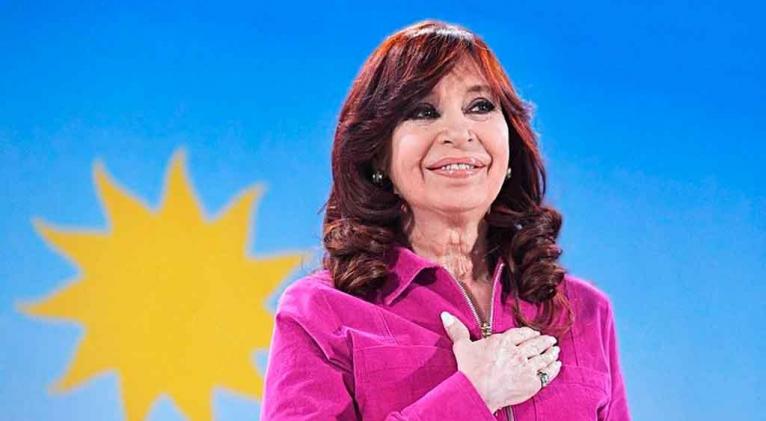Cristina Fernández: "We Will Rebuild the Country without Violence, with Courage and Love"
especiales

Former Argentine President Cristina Fernández de Kirchner delivered a powerful message from her house arrest on Tuesday, addressing a massive mobilization in Plaza de Mayo that came to be known as "El Cristinazo."
“We will return. We will rebuild the country—without violence, with courage, with love, with a lot of love,” Fernández declared to a silent, emotionally charged crowd that filled the iconic square and surrounding avenues.
“We will come back with more wisdom, more unity, and more strength. And from wherever I have to be, from whatever trench, I will continue doing everything in my power to be there with you,” she added.
Fernández is currently under house arrest after being sentenced to six years in prison and a lifetime political ban for alleged fraudulent administration. However, legal experts and human rights advocates have denounced the trial as irregular. Her legal team plans to take the case to international human rights and judicial bodies.
In her message, Fernández called for a return to a country where children have access to decent food, schoolbooks, and computers; where workers can make ends meet and save for a home; and where retirees have access to essential medicines.
“That country was not a utopia. No, no, no. We lived it for twelve and a half years,” she said, recalling her previous time in office and that of her late husband, former President Néstor Kirchner.
“We left the country debt-free—just like families and businesses should be. It’s unbelievable what they’ve done, how they’ve destroyed everything. But just as that past was real, I’m telling you: the current model, represented today by the law they’ve imposed, is collapsing,” she predicted.
According to Fernández, the current economic model is not only unjust and inequitable, but also fundamentally unsustainable. “It has an expiration date—like yogurt,” she said pointedly.
She drew historical parallels, referencing past economic ministers José Alfredo Martínez de Hoz (1976) and Domingo Cavallo (1990s), and questioned how an economy could function where people must rely on credit cards just to buy daily food—and then can’t afford to pay off the debt.
“How does a country survive where it’s cheaper to buy food, clothes, or travel abroad than it is within its own borders?” she asked. She sharply criticized the current Finance Minister, Luis Caputo, accusing him of “renting dollars” to fake reserve stability. “Can anyone seriously believe this is sustainable?” she questioned.
“The worst part,” she warned, “is that the real economic powers know this model has no future. They know it’s going to fall. And that is why I’m imprisoned.”
“But everyone—especially the concentrated economic powers—must understand this: they can imprison me, but they cannot imprison the entire Argentine people. We are not the ones who are afraid—they are,” she concluded defiantly.














Add new comment